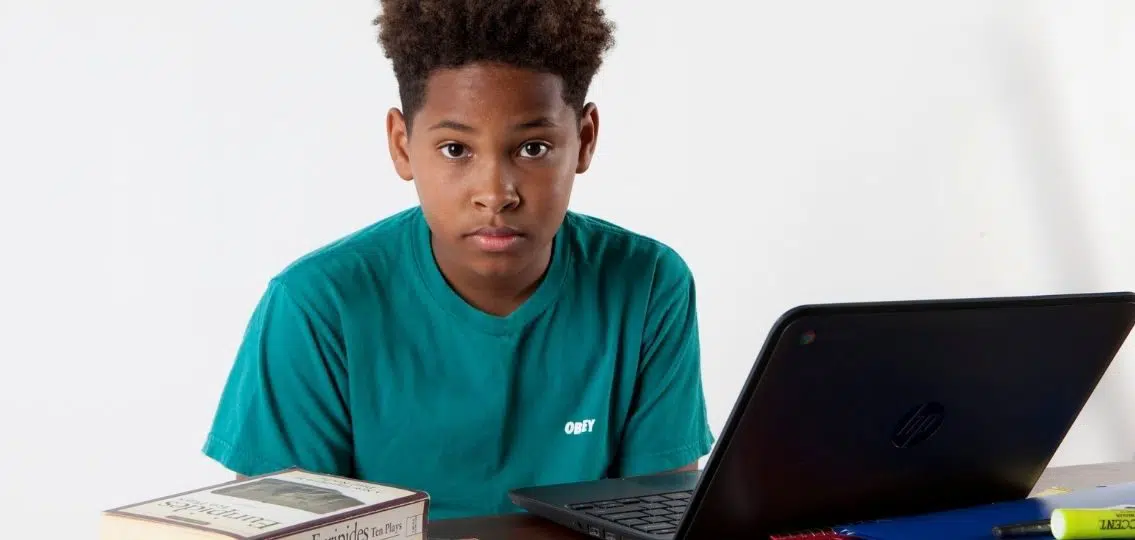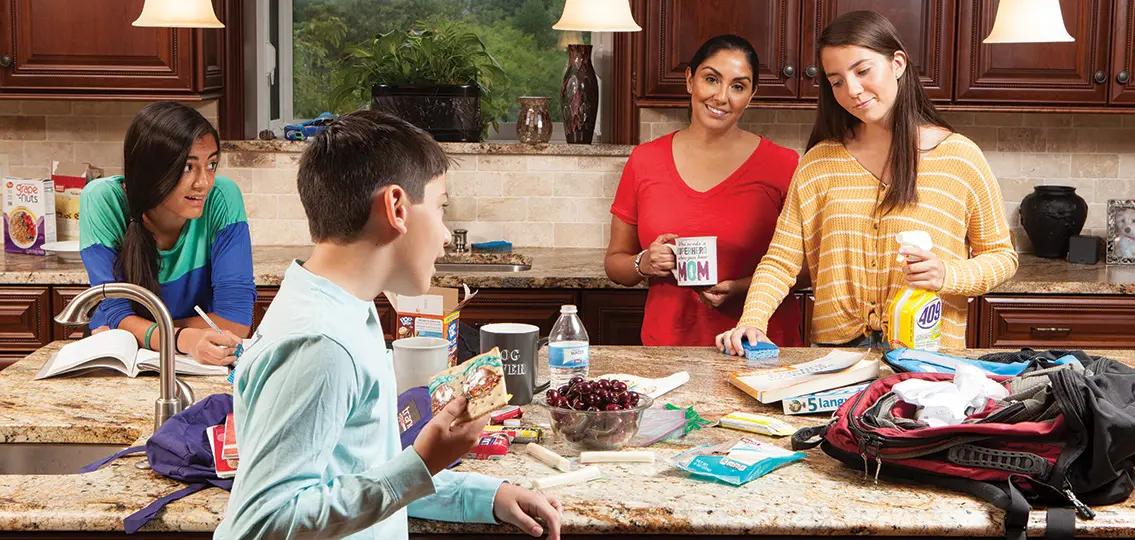Consider how much of your teenager’s day revolves around habits—both good and bad. The morning alarm emits a shrill beep at 6:30 a.m., followed by the smack of the snooze button. Two snooze smacks later, the weary ninth-grader gets up, showers, discards their towel on the floor, dresses, and is in the kitchen at 7 a.m., where they grab a bowl of cereal and check their phone.
Breakfast is followed by the 10-minute rush: the brushing of teeth and the grabbing of homework, backpack, and after-school gear from the pile in the hall. A few minutes later, a weary parent notices the forgotten lunch on the counter. Again.

By Definition, Habits Don’t Change!
While there may be slight variations to this morning scenario, the habits that make up this teenager’s morning—from hitting the snooze button to eating that bowl of cereal—likely don’t change much from day to day. In a 2006 study called “Habits—a Repeat Performance,” Duke University researchers found that habits account for about 40% of our behaviors on any given day.
That’s why habits can play a critical role in our happiness and productivity. It’s also important to note that we don’t usually think much about our habits; they’re essentially automatic behaviors. In her book Better Than Before: Mastering the Habits of Our Everyday Lives, Gretchen Rubin lists the defining characteristics of a habit:
- It is recurrent
- Cued by a specific context
- Often happens without much awareness or conscious intent
- Is acquired through frequent repetition—like (hopefully) your teen brushing their teeth after breakfast.
The Connection Between Good Habits and Success
Good habits set teens up for success. The habit of leaving the house on time every morning ensures that a student makes the school bus, isn’t late, and doesn’t miss valuable class time. By the same token, bad habits can hinder productivity, health, and happiness. Constantly walking in late to school or practices, for example, can impact grades or playing time—and maybe how a teen is viewed by others and even themselves.
Streamline routines
Julie Morgenstern, an organizational expert and author of Time to Parent: Organizing Your Life to Bring Out the Best in Your Child and You, advises her clients to streamline routines such as waking up, getting dressed, eating meals, and traveling to and from school or activities. The more predictable and less rushed routines are, the easier it is to turn them into habits and use them as moments for calm, focused quality time.
These routines are particularly important for busy teens who are dedicating many hours to more rigorous academics, as well as extracurriculars, work, and social lives. “Effective routines serve teens by making things happen; they’re the oil in the machine of life,” says Morgenstern.
Eliminate decision-making
There’s another benefit to these rote behaviors that some might not consider. Daily habits alleviate the stress of constantly having to make decisions, thereby calming and simplifying life for teens. Rubin notes that the real key to habits—beyond frequency, or repetition, or the familiarity of the cues for a particular habit—is the lack of decision-making. When it’s automatic, it’s easy—and that’s the heart of a habit.
Imagine if teens began each day with a constant stream of decisions to make. What time should I get up? Where should I go? What should I do? They’d be exhausted by lunchtime. Habits and routines automate certain parts of our life so we’re free to use our remaining time and energy to tackle the unknowns.
Habit Changes Are Hard—But Doable
KJ Dell’Antonia, author of How to Be a Happier Parent and a parent of teenagers herself, is encouraging but honest about helping adolescents change or develop new habits. “Look at how hard it is for adults to change or form new habits,” she says. “It’s not realistic for us to expect it to be easy for our teens.”
This is especially true when teens don’t see the need for a habit change. They may shrug off their parents’ daily admonition to empty the dishwasher each morning, preferring to just remove clean plates for immediate use—never mind the sink full of dirty dishes.
This doesn’t mean Dell’Antonia thinks parents should shy away from helping their own children learn how to change habits; she’s a firm believer in the power of habit when it comes to ensuring her children’s chores get done. But it might not be pretty—particularly if there’s no routine in place. Dell’Antonia advocates tying chores to something that happens daily. For example, regularly loading the dishwasher right after dinner for months on end, knowing there may be pushback until the practice becomes an established part of the dinnertime routine.
Enlist Your Teen in the Process
If your teen’s daily habits are leading to bad outcomes, like lost homework or too much time spent looking for misplaced items at the expense of more fulfilling activities, bring this up at a calm time. Experts advise against being reactive when everyone is feeling stressed and harried.
Instead, Morgenstern suggests parents take note of their teen’s challenges. Her most important advice to parents is to listen to your teens and be their advocate. “Help them design systems to achieve their goals—not yours.”
After listening and taking note of your teen’s challenges, Morgenstern suggests parents plan a conversation, with these guidelines in mind:
1. Name the problem.
You seemed stressed about [the morning routine/getting homework done/insert other challenge].
2. Get their input.
What are you struggling with?
3. Brainstorm solutions together.
There are skills you can learn and steps you can take to fix this, from utilizing a tutor to help with homework to making a room more functional. The key is making new routines natural and easy to maintain, so they can become a habit.
How Our Habits Influence our Teens
Teens have a wonderful tendency of pointing out their parents’ mistakes—including, perhaps, our own bad habits.
It may be hard, but in the process of talking about habit change, don’t get defensive if your teen turns it back on you. Instead, acknowledge, “I have to do better,” says Morgenstern. She also suggests modeling the habit you’d like to see. If your tween or teen forgets homework or other key elements for school each morning, show them a different model. Pack your work bag the night before, and narrate the choices you’re making to give them visibility.
Of course, what works for one person may not work for another. Rubin writes that successful people can have wildly different and equally successful habits. “There’s no magic formula—not for ourselves, and not for the people around us. We won’t make ourselves more creative and productive by copying other people’s habits, even the habits of geniuses; we must know our own nature, and what habits serve us best.”

Getting into the habit of listening and talking to your teen—as they work to shape their own identities—may be the perfect starting point for a discussion on habits.




